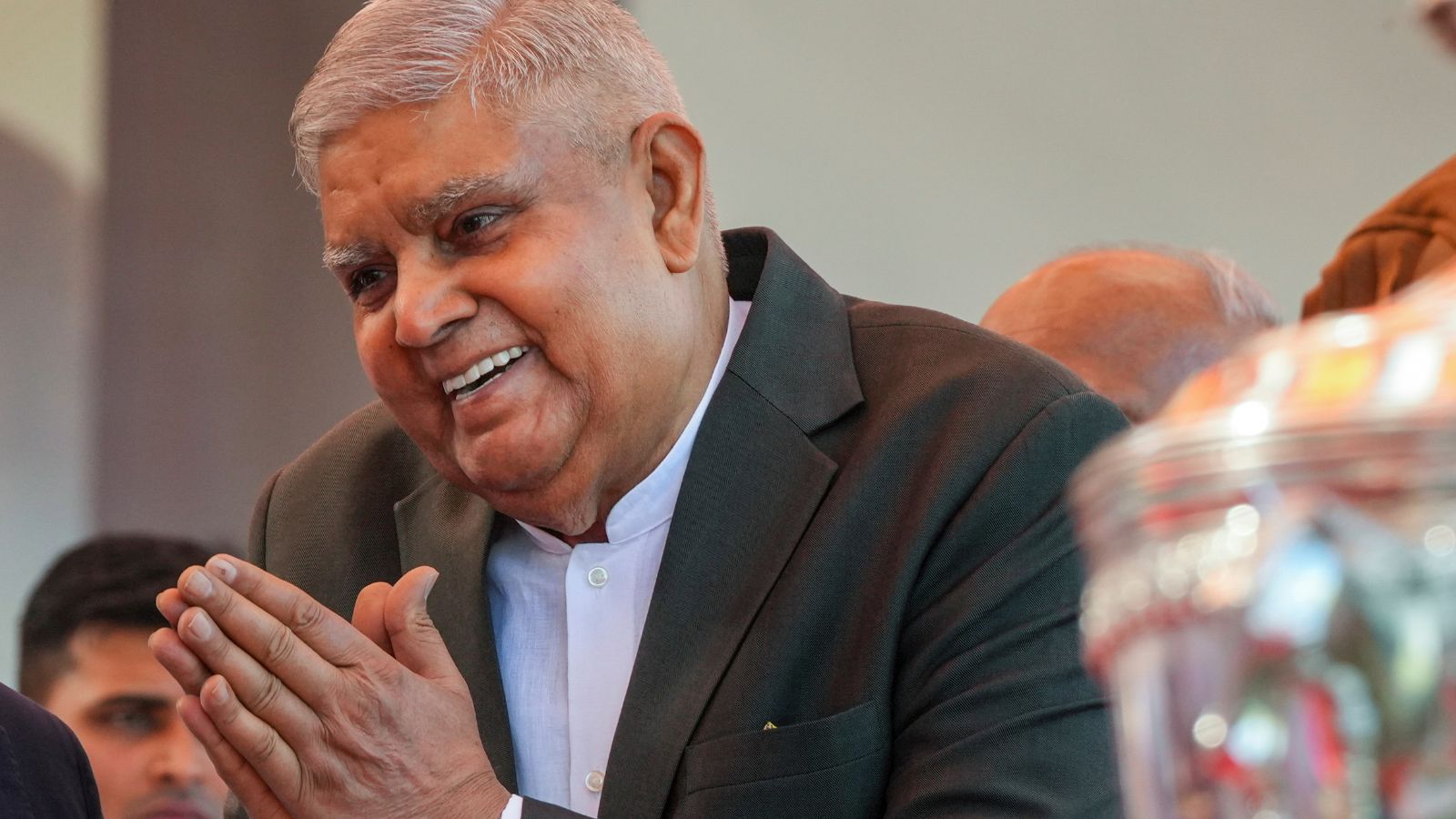
Jagdeep Dhankhar’s tenure as West Bengal Governor was a constitutional flashpoint
How did your country report this? Share your view in the comments.
Diverging Reports Breakdown
Jagdeep Dhankhar’s tenure as West Bengal Governor was a constitutional flashpoint
The office of the Governor in India’s constitutional architecture occupies a unique and often delicate space. The tenure of Jagdeep Dhankhar, who resigned as Vice President of India last night, as Governor of West Bengal is a classic example of how that delicate space can cause conflict between two offices. As the nominal head of a state, the Governor is expected to function as a vital link to the Union, a custodian of the Constitution, and a guide to the elected government. This role has an inherent tension: How to perform these duties, particularly on constitutional oversight, without being perceived as encroaching upon the democratic mandate of the state legislature and executive. Dhankhars role in West Bengal brought this tension into sharp public focus. It highlighted a fundamental divergence in predecessors like Gopal Krishna Gandhi, who operated on the principle of dignified and dignified mediation. It is one that continues to bring critical questions to the fore in other states, writes Dr Abdul Kalam.
As the nominal head of a state, the Governor is expected to function as a vital link to the Union, a custodian of the Constitution, and a guide to the elected government. This role has an inherent tension: How to perform these duties, particularly on constitutional oversight, without being perceived as encroaching upon the democratic mandate of the state legislature and executive. Dhankhar’s role as Governor of WB brought this tension into sharp public focus.
Advertisement
A defining feature was his prolific use of public platforms, most notably Twitter, to communicate his views and question the state government’s actions. This marked a departure from constitutional tradition and practice, that gubernatorial advice and concerns are best offered in private consultation with the Chief Minister. By taking his critiques of administrative and policy matters directly to the public sphere, Jagdeep Dhankhar created a dynamic of constant, open friction with the Mamata Banerjee government, fundamentally altering the nature of their constitutional engagement.
On the issue of law and order, Dhankhar was a persistent critic, frequently summoning senior police officials and issuing statements that questioned the state’s administrative capacity. Following the 2021 Assembly elections, his visits to areas affected by post-poll violence were presented as a response to a constitutional crisis. However, these actions were met with accusations from the ruling Trinamool Congress (TMC) that the Raj Bhavan was acting in a partisan manner, with his pronouncements often aligning closely with the narrative of the Bharatiya Janata Party (BJP), the opposition in the state.
This friction extended deep into the legislative domain. The Governor’s power to grant or withhold assent to bills passed by the legislature is a constitutional check, but it is meant to be exercised with utmost restraint. During his tenure, several bills, including the crucial Howrah Municipal Corporation (Amendment) Bill, remained pending at the Raj Bhavan for extended periods.The state government argued that such delays amounted to an obstruction of the legislative will of the people.
Advertisement
To appreciate the distinctiveness of this approach, it is instructive to contrast it with the gubernatorial style of Gopal Krishna Gandhi, who served in West Bengal from 2004 to 2009. Gandhi, a seasoned diplomat and scholar, presided during an equally, if not more, volatile period. His interventions, however, were rooted in what could be described as constitutional quietude and moral suasion. He engaged in firm, but discreet, dialogue with the then Chief Minister Buddhadeb Bhattacharya. He sought to be a mediator, a calming influence who could facilitate talks between the government and the Opposition, then led by Mamata Banerjee. The contrast is one of method: One chose public scrutiny as the primary tool of accountability, the other chose private counsel and moral authority.
Also Read | Jagdeep Dhankhar draws curtains on a stormy Rajya Sabha run
While one contextualises Jagdeep Dhankhar’s tenure, it cannot be divorced from the prevailing national political climate, characterised by intense competition between the BJP-led central government and powerful regional parties such as the TMC. His actions in West Bengal were seen by many observers as part of a pattern in Opposition-ruled states where the Raj Bhavan became a key site of political contestation. This aligns with the long-standing debate over the role of the Governor, with bodies like the Sarkaria Commission having cautioned decades ago against appointing active politicians to the post to prevent the office from being used for partisan ends.
The governorship of Dhankhar in West Bengal was a tenure that consistently tested the established conventions of India’s federal democracy. By adopting a posture of public and persistent opposition to the elected state government, his term forced a debate on the very nature of the Governor’s role. It highlighted a fundamental divergence in approach from predecessors like Gopal Krishna Gandhi, who operated on the principle of dignified detachment and mediation.
The legacy of Jagdeep Dhankhar’s term in West Bengal is, therefore, one that brought critical questions to the fore, one that continues to play out in other states: Where does a Governor’s duty to uphold the Constitution end and political interference begin? And what are the long-term institutional consequences when the Raj Bhavan is perceived not as a neutral umpire, but as a player in the political arena?
The author is a political anthropologist and teaches in Dr APJ Abdul Kalam Government College, Kolkata
